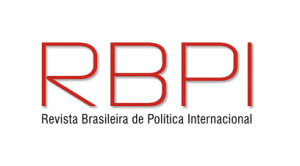Por Antônio Carlos Lessa, professor do Instituto de Relações Internacionais da Universidade de Brasília e editor chefe da Revista Brasileira de Política Internacional – RBPI, Brasília, DF, Brasil, e Cristina Yumie Aoki Inoue, professora do Instituto de Relações Internacionais da Universidade de Brasília, Brasília, DF, Brasil
 “One world, many (or rival) theories” is a well-known claim in the field of International Relations (Walt 1998, Snyder 2004). However, not so many theories have been recognized. In the field’s core, the view still prevails that there are three groups of theories, and that the field is structured by the debates between poles (neo) realism versus (neo) liberalism; rationalism versus reflexivism. Does this view reflect the ontology, epistemology, theories and methodologies of the field? Several theorists have asked whether the field reflects the concerns of people outside the U.S., or indeed the ‘Western world.’
“One world, many (or rival) theories” is a well-known claim in the field of International Relations (Walt 1998, Snyder 2004). However, not so many theories have been recognized. In the field’s core, the view still prevails that there are three groups of theories, and that the field is structured by the debates between poles (neo) realism versus (neo) liberalism; rationalism versus reflexivism. Does this view reflect the ontology, epistemology, theories and methodologies of the field? Several theorists have asked whether the field reflects the concerns of people outside the U.S., or indeed the ‘Western world.’
The globalization of International Relations (IR) as a field of study has brought to light that there are many worlds. A recent trend in the field is challenging the one world-few theories view. Many questions have been asked: “Why is there no non-Western international theory?” (ACHARYA & BUZAN 2010)? What does the field look like around the world? (TICKNER & WAEVER 2009, TRIP surveys, the Worlding Beyond the West Series). The 2015 International Studies Association Annual Convention theme: Global IR and Regional Worlds, a New Agenda for International Studies also points to the ongoing process towards an enlarged and more encompassing IR agenda.
Recent findings show, on the one hand, that there is not so much diversity: state centrism, classic realism, and foreign policy analysis are dominant the world over. Theory goes unrewarded, not least in the Global South (TICKNER & WAEVER 2009). On the other hand, many worldviews, epistemologies, theories and concepts can be found in an enlarged sense of the international (TICKNER and BLANEY 2013). Perhaps it would be more productive to claim that there are many worlds and many theories. While “worlding”, or pluralizing the discipline is highly desirable, a few dilemmas emerge, such as how not to descend a spiral of epistemological relativism, or how to construct a hybrid space between uniformity and difference, or how to encourage diversity and some sense of unity in the field.
The Revista Brasileira de Política Internacional – RBPI will publish in April 2016 a special issue organized by Cristina Yumie Aoki Inoue (Professor of International Relations of the Institute of International Relations, University of Brasilia, Brazil), Arlene Beth Tickner (Professor of International Relations in the Political Science Department at the Universidad de los Andes, Bogotá, Colombia) and Antônio Carlos Lessa (Professor of International Relations of the Institute of International Relations, University of Brasilia, and editor-in-chief of RBPI). This special issue aims at contributing to construct a more global or plural IR, and to bring to light IR views from South America and beyond.
We welcome submissions that discuss the following questions and themes: What do theories mean in South America and other regions? Are there Latin American theories of IR? Is metatheory dead? Are there different ways of theoretically thinking foreign policy? Is it possible to think beyond state centrism? Teaching IR: does context matter? Theory and the BRICS, global south and post-colonial theorizing, governance, governmentality and theory, ethics and relativism, feminist theories go South, universalism and pluriversalism.
All submissions should be original and unpublished, must be written in English, including an abstract of less than 70 words (and three keywords in English), and follow the Chicago System. They must be in the range of 8.000 words. The deadline for submissions is September 30th 2015. Submissions must be done at On Line Submissions on http://www.scielo.br/rbpi.
Timeline
End of January- September 30th 2015 – Call for Papers
October 1st – Dec 15th 2016 – Peer review
Dec – March 1st 2016 – Reviews (Editors)
Referências:
WALT, S.M. One World, Many Theories. Foreign Policy, Spring 1998, n° 110, Special Edition: Frontiers of Knowledge, pp. 29-32+34-46. Published by: Carnegie Endowment for International Peace Stable. [viewed March 2th 2009]. Available from: http://www.jstor.org/stable/1149275
SNYDER, J. One World, Rival Theories. Foreign Policy, Nov. /Dec. 2004, n° 145, pp. 52-62 Published by: Carnegie Endowment for International Peace Stable. [viewed March 2th 2009]. Available from: http://www.jstor.org/stable/4152944
TICKNER, A.B. and WAEVER, O. Introduction: geocultural epistemologies. In: TICKNER, A.B., org. and WAEVER, O., org. International Relations Scholarship Around the World, 2009.
ACHARYA, A. and BUZAN, B. Why is there no non-Western international theory? An introduction. In: ACHARYA, A., org. and BUZAN, B., org. Non-Western International Relations Theory. Perspectives On and Beyond Asia, 2010.
TICKNER, A.B. and BLANEY, D.L. Introduction: thinking difference. In Arlene, A.B. and BLANEY, D.L., ed. Thinking International Relations Differently. Routledge, 2012, Book series – Worlding Beyond the West, by Routledge. [viewed January 30th 2015]. Available from: http://www.taylorandfrancis.com/books/series/WBW/
TRIP – Teaching, Research, and International Policy (TRIP). Project The Institute for the Theory and Practice of International Relations. The College of William and Mary Williamsburg, Virginia. [viewed January 30th 2015]. Available from: http://www.wm.edu/offices/itpir/trip/
Links externos:
Revista Brasileira de Política Internacional – http://www.scielo.br/rbpi/
On Line Submissions – https://mc04.manuscriptcentral.com/rbpi-scielo
Como citar este post [ISO 690/2010]:


















Últimos comentários